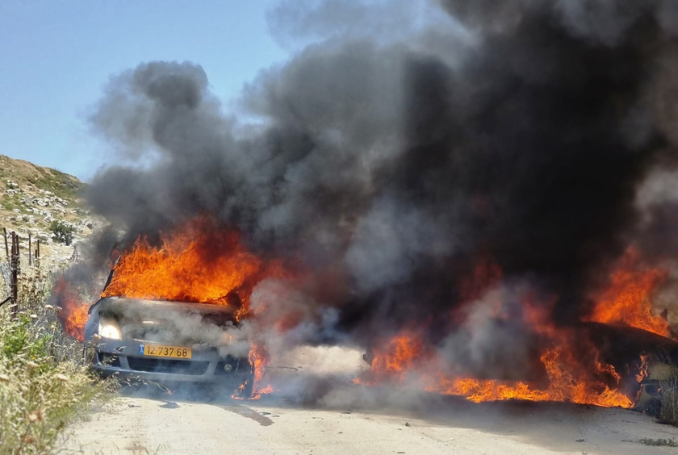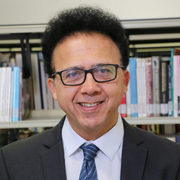
By Jamil Khader
Huwwara and Stella Maris are the truth of the judicial overhaul and the protests in the apartheid Jewish ethnocratic state
The pogrom in Huwwara, near Nablus, and the attacks on the Stella Maris Monastery, in Haifa, embody the truth not only about the judicial reforms but also the statewide protests in the apartheid Jewish ethnocratic state. This ominous trend must be understood in the context of the recent qualitative developments in traditional secular Zionist settler-colonial ideology especially, the rise of extremist messianic Zionist ideology and its scheme to create a theocratic dictatorship.
Zionist Settler-Colonialism 2.0: The Rise of Extremist Messianic Zionist Ideology
As the internal contradictions that rip the apartheid Jewish ethnocratic state escalate, the religious/secular divide has emerged as the fundamental antagonism. The European Ashkenazi Zionist establishment seeks to resolve these contradictions, especially the status of the occupied Palestinian territories, by restructuring the political and legal theaters and reintegrating the religious Zionist camp into its hegemonic structures. To paraphrase Ilan Pappe’s recent insightful comments, it is not “Judea” as a substitute for “Fantasy Israel,” but “Judea” in the service of “Fantasy Israel.”
The global rise of authoritarian capitalism, through the alliance between fascist movements and global capital, has consolidated the power of extremist messianic Zionist ideology and accelerated its attack on the structures of European Ashkenazi “illiberal” democracy. Moreover, as Michael Marder notes, the Haredi population is growing twice as fast as the overall Israeli population, making it likely for far-right coalitions “to become a constant feature of Israel’s political landscape.” In fact, a well-funded government taskforce, chaired by the leader of the homophobic party Noam, has been tasked with “strengthening Jewish identity – a well-known code for encouraging Orthodox beliefs and observance.”
The ultimate goal of this far-right messianic Zionist ideology, along with its emerging “new settler” movement (Zionist settler-colonialism 2.0), is the establishment of a halachic theocratic state (the equivalent to Shari’a law). In this state, Jews have an “exclusive and inalienable right” over all parts of historical Palestine, based on the principles of Jewish supremacy and the subjugation of goyim under their racist theocratic rule.
The question of the status of the Palestinians and the Palestinian Authority looms large in this ideology. While the hegemonic Ashkenazi establishment stalled and thwarted any resolution to the Palestinian question through deliberately failed peace talks, extremist messianic Zionist ideologues do not equivocate about annexing all of historical Palestine under their control, with total disregard, even contempt, for international law.
In this apartheid theocratic dictatorship, according to Smotrich’s manifesto, Palestinian Arabs cannot have a place in their indigenous homeland. Instead, they should either accept their inferior status as “resident aliens,” if they choose to remain, or be exterminated by the military, which “will already know what to do.”
Planning for Another Nakba: Vigilante Terror or the Occupation Military
As if the Ongoing Nakba, the smaller acts of Jewish terrorism and ethnic cleansing, is not enough, extremist messianic Zionist settler-colonial ideologues have been advocating for another major cataclysmic Nakba, not only in the occupied Palestinian territories but also within the borders of the apartheid Jewish ethnocratic state. The Huwwara-style Jewish settler-colonial terrorism and the attacks on the Stella Maris Monastery are just the beginning of this ominous trend.
Extremist messianic Zionists have been emboldened by their ascent to power, the world community’s complicity in Israeli crimes, and the normalization of relations with the Arab world that whitewash Israeli violations of human rights. Furthermore, the rise of authoritarian capitalism will consolidate this extremist messianic Zionist ideology.
Global capitalism is seeking alliances with fascist movements, in order to undermine and do away with democratic structures of governance that try to mitigate or hinder the extractive accumulation of capital and surplus value. It is thus expected that global capital will continue investing in the apartheid Jewish ethnocratic state, especially if or when these fascist messianic movements take over. In fact, Amazon has just announced investing 7.2 billion dollars in Israel’s economy, which will “contribute about $13.9 billion to Israel’s gross domestic product.”
As such, these extremist messianic Zionists openly call not only for the destruction and expulsion of the Palestinians, but also for “slaughter, pogroms, and total annihilation.” They only diverge on the methods to achieve these horrific goals, with some endorsing vigilante acts of revenge, while others promote the mobilization of the Israeli occupation forces.
Enjoy Your Revenge: from Ideological Identity to Surplus Enjoyment
One commentator unpacked the essence and the covert messaging of this hegemonic extremist ideology. For him, the idea boils down to the following: “If a Jew wants land, it is his. If a Jew wants property, it is his. Every shekel given to a non-Jew is a waste. Every right given to a non-Jew is given to him conditionally, as long as it does not conflict with the needs and wishes of a Jew. Not every Jew, by the way. It is important to clarify: these are the Jews who are considered to be the holy vessels on whom the Spirit of God rests according to their claim, and they represent the entire nation, even if the majority of the nation disagrees with them.”
Underpinning this extremist messianic Zionist discourse lies a shift in ideological structure—from a commitment to the cause of Zionism to a pursuit of its rewards or obscene surplus enjoyment. As the Slovenian philosopher Slavoj Žižek explains, ideology operates on two levels: On the one hand, there is the explicit ideological identity or discourse that appeals to the subjects, engaging them as followers of a particular cause.
On the other, there is the implicit message of ideology that is never directly stated, but through which subjects are incentivized to enjoy at a deeper level if they continue to adhere to the cause. In essence, this excessive enjoyment serves as a bribe or a reward that a community bestows on its subjects for their loyalty and adherence to the rules.
In this extremist messianic Zionist discourse, the surplus enjoyment (killing Palestinians, burning their homes, evicting them from their homes, confiscating their lands, building settlements, destroying their olive trees, Judaizing Al-Aqsa, etc.) becomes explicitly articulated. While these forms of surplus enjoyment were previously viewed as an exception in official Zionist discourse, they are now considered the norm.
Zionist settler-colonial ideology is increasingly shaped by this explicit message, through which messianic Zionist ideology entices its subjects with the promise of obscene surplus enjoyment if they continue to adhere to this ideology. This explicit appeal to excessive forms of enjoyment is further sustained by discourses of victimization and grievance that settlers peddle in response to Palestinian resistance.
In line with international trends, it is not only expected that Palestinian resistance will continue to be delegitimized as anti-Semitic. Rather, Zionist vengeance and retaliation will be rebranded as the true resistance movement to Palestinian and pro-Palestinian “wokism.”
The Protests are the Obverse Side of the Judicial Reforms
Herein lies the truth not only of the judicial reforms but also the statewide demonstrations in the apartheid Jewish ethnocratic state. The Huwwara pogrom, as one commentator aptly put it, is the embodiment of these reforms. “The intention appears to be to undermine the rule of law and foster an environment of lawlessness under the Palestinian Authority.” Moreover, neutralizing judicial oversight is the “first crucial step towards realizing” the extremist messianic Zionist dream of a halachic theocratic state.
Similarly, the secular demonstrations opposing these judicial reforms reveal the inherent anti-Arab and anti-Palestinian ideology of the apartheid Jewish ethnocractic state. These protests have excluded Palestinian Arab voices and made it clear that neither the occupation nor the apartheid legal system inside this “illiberal democracy” is a part of their campaign.
Although some protests were held in the settlements in the occupied Palestinian territories, protestors were more concerned about the toxic brand of Judaism that messianic settlers represented and the privileges they enjoy, more than they were concerned about the occupation or the apartheid regime they seek to perpetuate. In fact, one of the protestors revealed not only that her soldier son served in Huwwara, but also that somehow she “didn’t vote for a party that supports the settlements.”
These self-delusions merely perpetuate the mythic foundations of “the only democracy in the Middle East.” Indeed, there is nothing transformative or emancipatory about these demonstrations. They merely reflect the unwavering determination of the European Ashkenazi establishment to maintain its Jewish supremacy, power, and privileges.
Needless to mention, this Supreme Court itself has played a major role in upholding racist and discriminatory laws against its Palestinian Arab citizens and Palestinians under occupation alike. It clearly favored apartheid rule over “human rights.”
For international activists, socialist, and other social justice advocates, merely denouncing Zionism as “a racist, imperialist, settler-colonial project” is not sufficient. Activists must also emphasize how official secular Zionist settler-colonial ideology has been repackaged in messianic Zionist terms that glorify revenge, pogroms, and ethnic cleansing, without any acknowledgment of, or apology for, their crimes.

– Professor Jamil Khader is Dean of Research at Bethlehem University, Professor of English, and Editor at The Bethlehem University Journal. He contributed this article to The Palestine Chronicle.







